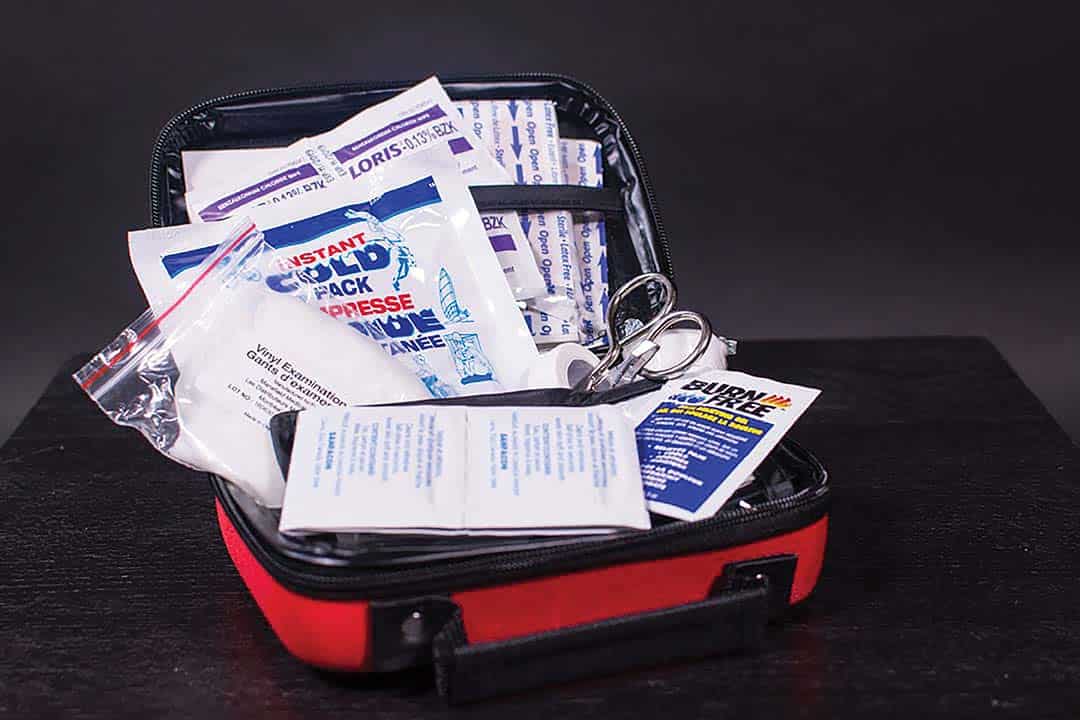Content warning: This article discusses substance use.
On November 28, Ready Our Youth (ROY) hosted an event to educate UTM students about the use and importance of naloxone. With the national opioid overdose crisis continuing to ravage communities across the nation, Canadians between the ages of 15 and 24 are the fastest growing population requiring hospital care from opioid overdoses according to Health Canada. Although some alternative medicines are currently under development, naloxone remains one of the most widely available drugs used to reverse opioid overdoses. Between 2017 and 2021, Ontario Provincial Police used naloxone to save more than 200 lives.
The UTM event was borne out of a collaboration between ROY, a UTM organization dedicated to educating students on the opioid epidemic; the Psychology Association of Undergraduate Studies at Erindale; and Halton Alcohol, Drug and Gambling Assessment Prevention & Treatment Services (Halton ADAPT), a non profit community-focused agency devoted to helping people affected by the opioid epidemic.
To begin the event, Alex Cimino, a clinical case manager at Halton ADAPT, discussed the opioid epidemic in Ontario. According to Cimino, mortality from opioid overdoses spiked during the height of the COVID-19 pandemic: “[In Ontario] in 2020, there were 2,461 deaths from opioid overdoses or opioid-related deaths. That’s huge,” said Cimino.
These deaths constituted a roughly 57 per cent increase from 2019 levels, and the situation is not improving. “In 2021, [opioid-related deaths in Ontario] were 2,880, still a very drastic number… and this is having a huge impact on our society,” said Cimino.
To address this issue, Cimino highlighted the importance of naloxone, a safe and fast-acting medication that can reverse the effects of opioid overdoses. According to Cimino, first responders in the GTA take an average of 15 minutes to arrive on a scene, so carrying naloxone could be the difference between someone’s life or death.
During the event, Cimino explained the steps necessary to identify an opioid overdose and administer naloxone. Students can obtain free naloxone kits at various locations in the GTA, including needle exchange and harm reduction programs. Such kits are provided through the Ontario Naloxone Program, which provides free kits without a prescription. Currently, the Discovery Pharmacy at U of T, run by the Leslie Dan Faculty of Pharmacy, is also piloting naloxone training for some university offices.
In an interview with The Varsity, Nardeen Oweis, the president of ROY, discussed their worries concerning the increased prevalence of opioid addiction among “youth our age.” According to Oweis, ROY plans for the near future include another naloxone education event and mental health initiatives in February to help connect UTM students to the resources they need.
For more information about naloxone and opioid overdose prevention, you can access:
- Toronto’s Take Home Naloxone Program, reachable via email at [email protected] or via phone at 416-392-0520,
- Toronto’s Overdose Prevention Line at 1-888-853-8542,
- Safer Use Peer Support Line at 1-888-233-5633 between 8PM-1AM,
- Overdose Response Service, which is available to anyone in Canada and can be reached at 1-888-688-6677, or
- Halton ADAPT’s Intake Desk at 905-639-6537 or its Opioid Outreach and Treatment Services at 1-855-211-0898.


